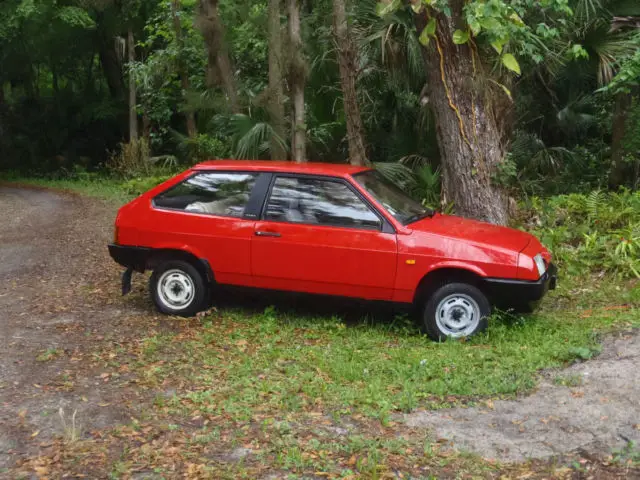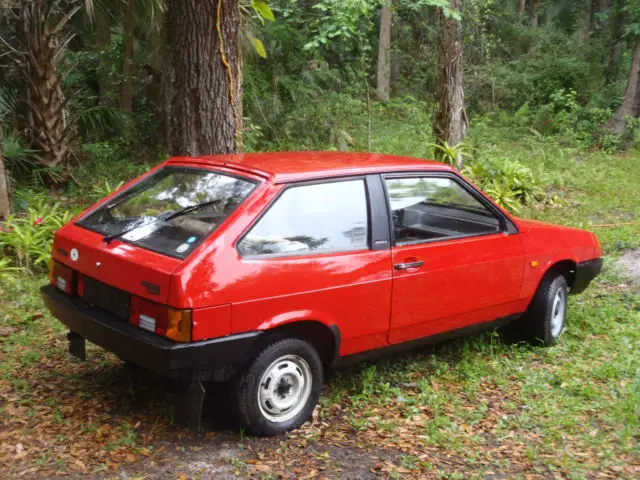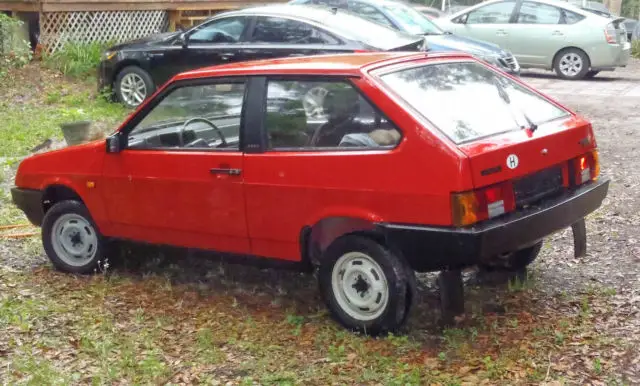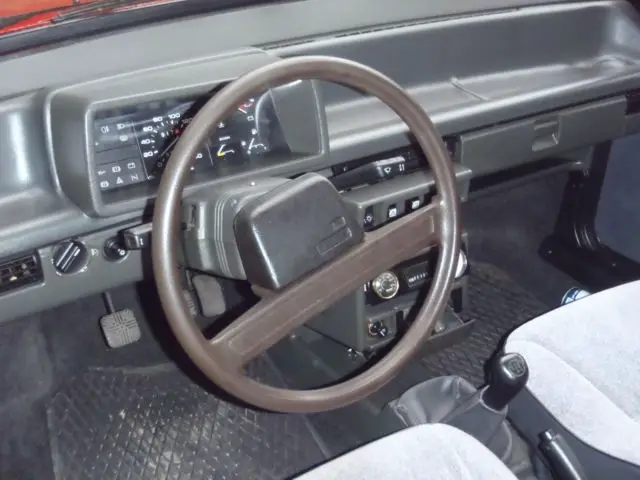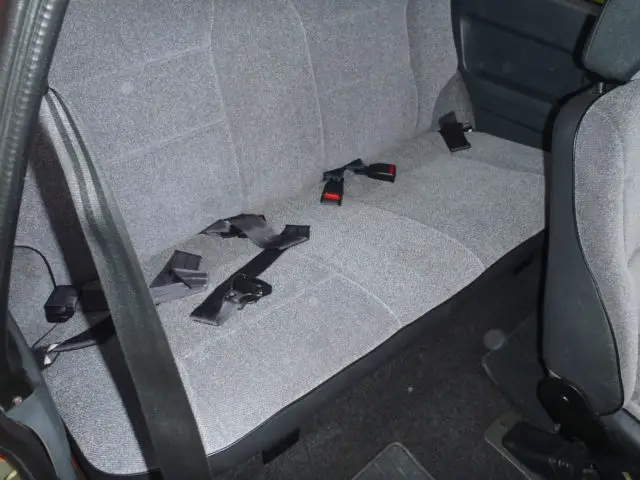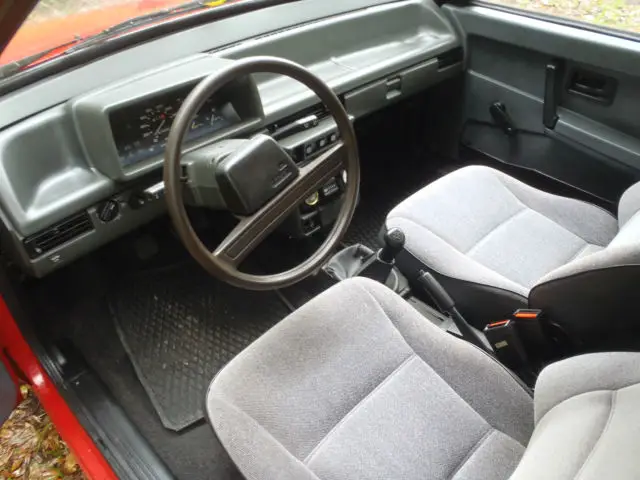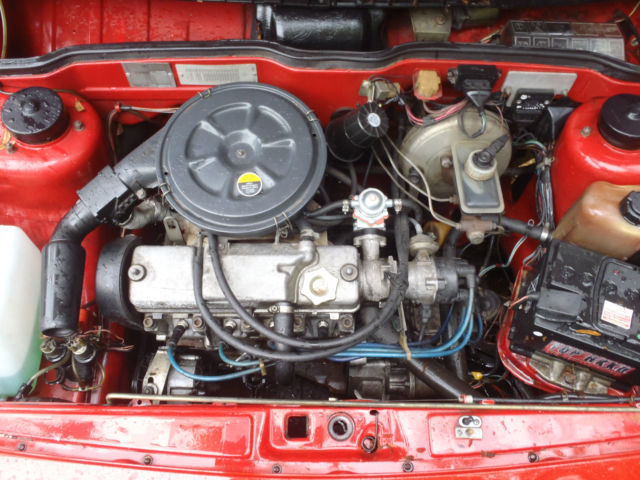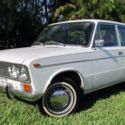1989 LADA SAMARA, VAZ 2108, SHIGULI, FIAT, 1 OWNER PERFECT ORIGINAL CAR,
| Make: | Other Makes |
| Model: | LADA SAMARA 2DR |
| Trim: | BASE |
| Year: | 1979 |
| Mileage: | 42,400 |
| VIN: | XTA290800K046113 |
| Color: | Red |
| Engine: | 1.3L |
| Cylinders: | 4 |
| Fuel: | Gasoline |
| Transmission: | Manual |
| Drive type: | FWD |
| Interior color: | Gray |
| Vehicle Title: | Clear |
| Item location: | Sanford, Florida, United States |
1979 Other Makes LADA SAMARA 2DR Additional Info:
1989 LADA SAMARA, VAZ 2108, 2 DOOR. RECENTLY IMPORTED FROM EUROPE. ONE OWNER CAR. ORIGINAL 67.800KM ( 42.400 MI ). IMMACULATE, (2 INCH) VEHICLE. SHINY ORIGINAL PAINT, NO ACCIDENT. INTERIOR LOOKS BRAND NEW. ALWAYS GARAGED. RUNS AND DRIVE LIKE NEW. SALE INCLUDED AN ORIGINAL RUSSIAN SERVICE MANUAL. SHOW CAR CONDITION.LOCATED IN CENTRAL FLORIDA. HAS CLEAR TITLE.
IT CAN BE YOUR DAILY DRIVE OR A SHOW CAR.
I IMPORTED SOME OTHER CARS FROM BEFORE, BUT THIS IS THE ONE IN THE BEST CONDITION. I COULD NOT FIND ANY FLAWS.
IT IS AN 1989 CAR BUT I HAD TO LIST AS 1979 BECAUSE EBAY SYSTEM DID NOT RECOGNIZE THIS VIN.
The Lada Samara is a small family car produced by Soviet/Russian vehicle manufacturer AvtoVAZ under the Lada brand since 1984. The model name Samara originally was used only for exported models, in Russia the same model was called Sputnik ("fellow traveler", "satellite") until 1991, when the sedan version of the Samara entered in production, using the export name. It was the first front-wheel drive serial car built in the Soviet Union after the LuAZ-969V.[1] The Samara had been modified and restyled during the years of production before it was finally discontinued in December 2013.
On December 31, 1979, the first VAZ-2108 prototype was completed.[10] It strongly resembled the earlier Ladoga, and the VAZ-1106 saloon.[6] While named Sputnik at home, it was more commonly known as the "Eight" after the last digit in the model code.[8] The export version was named after the Samara River, a tributary to the Volga.[11] The first cars left the production line on 18 December 1984.[8] These, the three-door hatchbacks (the only model available at first), were powered by a belt-driven SOHC 1,288cc (78.6cuin) inline-four, and were fitted with a four-speed gearbox.[8] The three-door was joined by a five-door, and by models with 1,099cc (67.1cuin) (a destroked version of the 1288) or 1,499cc (91.5cuin) (a bored-out 1288) engines.[9] (The head was developed in co-operation with Porsche, though most Western observers assumed Porsche's involvement went beyond just engines,[12] and the carburetors in connection with Solex.[8]
In 1987, the model range was joined by the 21083, with a 71hp (53kW; 72PS) 1,499cc (91.5cuin) engine and five-speed gearbox, and the 21081, with a 53hp (40kW; 54PS) 1,099cc (67.1cuin).[13] The 1099 was an export-only variant.[13] Top speeds were 87mph (140km/h) (1099), 92mph (148km/h) (1288) and 97mph (156km/h) (1499); fuel economy was 7.9L/100km (36mpg-imp; 30mpg-US) (1099), 9.3L/100km (30mpg-imp; 25mpg-US) (1288), or 9.5L/100km (30mpg-imp; 25mpg-US) (1499).[14] VAZ also debuted the 2109 five-door hatchback that year, also available with the 1,099cc (67.1cuin), 1,288cc (78.6cuin), and 1,499cc (91.5cuin).[15] In 1989, the 21099 saloon followed, which had a new bonnet, grille, wings, and 200mm (7.9in)-longer rear overhang, as well as an improved dashboard.[15] The 21099's front-end styling was adopted on the 2109 in 1992 and the 2108 in 1994, as well.[15]

